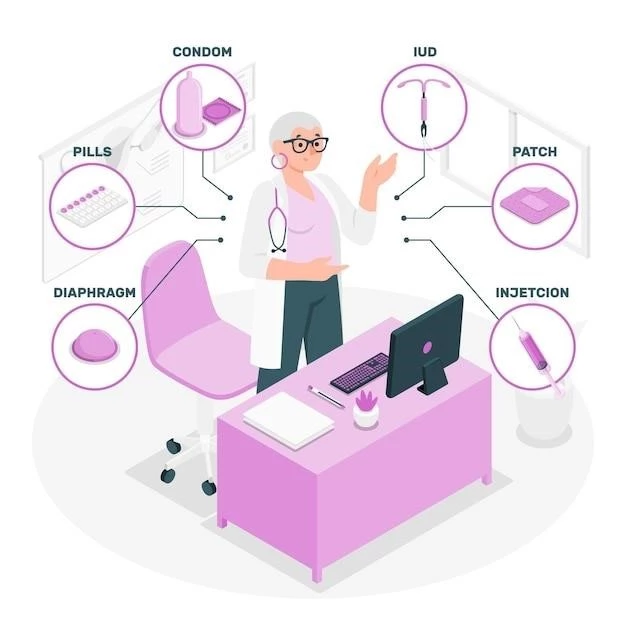Symptoms of Cyclosporosis
Gastrointestinal Symptoms⁚ Nausea, diarrhea, abdominal pain.
Flu-like Symptoms⁚ Fatigue, body aches, fever.
Neurological Symptoms⁚ Headaches, confusion, dizziness.
Gastrointestinal Symptoms
The gastrointestinal symptoms of Cyclosporosis include nausea, vomiting, watery diarrhea, abdominal cramping, and loss of appetite. These symptoms can be persistent and lead to dehydration if not treated promptly.
Flu-like Symptoms
Individuals with Cyclosporosis may experience flu-like symptoms such as fatigue, muscle aches, low-grade fever, and chills. These symptoms can mimic a typical viral infection but persist if caused by Cyclospora parasite.
Neurological Symptoms
Neurological symptoms of Cyclosporosis can include headaches, confusion, dizziness, and in severe cases, seizures. These symptoms result from the impact of the parasite on the central nervous system and require prompt medical attention.
Treatment options for Cyclosporosis
Antiparasitic Medications⁚ Prescribed drugs to eliminate the Cyclospora parasite.
Supportive Care⁚ Fluid replacement and symptom management.
Hospitalization⁚ In severe cases requiring intensive medical care.
Antiparasitic Medications
Antiparasitic medications are the primary treatment for Cyclosporosis. These medications are prescribed by healthcare providers to target and eliminate the Cyclospora parasite from the body, helping to alleviate symptoms and promote recovery.
Supportive Care
Supportive care for Cyclosporosis involves managing symptoms and promoting recovery. It includes hydration with oral rehydration solutions or IV fluids, rest, and monitoring for complications. Supportive care can help alleviate discomfort and prevent dehydration, supporting the body’s immune response.
Hospitalization
In severe cases of Cyclosporosis, hospitalization may be necessary for intensive medical care. Hospitalization allows for close monitoring of symptoms, IV fluid administration, and potential interventions to manage complications. Healthcare professionals can provide specialized care to support recovery and prevent further health issues.
Causes of Cyclosporosis
Parasitic Infection⁚ Caused by ingesting food or water contaminated with Cyclospora oocysts.
Cyclospora cayetanensis Parasite⁚ Specifically, a microscopic parasite responsible for the infection.
Parasitic Infection
Cyclosporosis is caused by a parasitic infection resulting from the ingestion of contaminated food or water containing Cyclospora oocysts. Once ingested, the oocysts release parasites in the intestine, leading to an infection that manifests as Cyclosporosis.
Cyclospora cayetanensis Parasite
Cyclospora cayetanensis is the specific parasite responsible for causing Cyclosporosis in humans. This microscopic parasite enters the body through contaminated food or water, where it develops into oocysts that lead to infection upon ingestion. Understanding the transmission and lifecycle of this parasite is crucial in preventing and managing Cyclosporosis.

Prevention tips for Cyclosporosis
Wash Fruits and Vegetables⁚ Thoroughly wash produce before consuming.
Drink Clean Water⁚ Ensure water is safe and from a reliable source.
Wash Fruits and Vegetables
Properly washing fruits and vegetables under running water can help remove dirt, bacteria, and parasites like Cyclospora. This simple practice reduces the risk of ingesting contaminated produce and lowers the chances of Cyclosporosis infection, promoting food safety and overall health.
Drink Clean Water
Consuming clean and safe water is crucial to prevent Cyclosporosis. It is advisable to drink filtered or purified water from trusted sources to reduce the risk of ingesting Cyclospora parasites. Maintaining high standards of water hygiene is essential for overall health and disease prevention.
Diagnosis of Cyclosporosis
Stool Sample Analysis⁚ Testing for Cyclospora oocysts in stool samples.
Medical History and Symptoms⁚ Evaluating symptoms and possible exposure.
Stool Sample Analysis
Diagnosing Cyclosporosis involves analyzing stool samples for the presence of Cyclospora oocysts under a microscope. This method helps confirm the infection by identifying the parasite. Stool sample analysis is a crucial diagnostic tool to determine the appropriate treatment and manage the disease effectively.
Medical History and Symptoms
Diagnosing Cyclosporosis involves reviewing the patient’s medical history and symptoms. Understanding the onset and duration of symptoms, recent travel, and food/water sources can help healthcare providers determine the likelihood of Cyclospora infection. This comprehensive assessment aids in accurate diagnosis and effective treatment planning.
Risk factors for Cyclosporosis
Travel to Endemic Regions⁚ Visiting areas with high Cyclospora prevalence.
Compromised Immune System⁚ Weakened immunity raises infection risk.
Travel to Endemic Regions
Traveling to regions where Cyclospora is common increases the risk of exposure and infection. Endemic areas may have contaminated food and water sources harboring the parasite. Taking preventive measures such as safe eating and drinking practices is crucial when visiting these regions to avoid contracting Cyclosporosis.
Compromised Immune System
Individuals with weakened immune systems are at higher risk of Cyclosporosis. Conditions like HIV/AIDS, undergoing chemotherapy, or taking immunosuppressant medications can make the body more susceptible to infections, including Cyclospora. Maintaining overall health and seeking medical advice are crucial for those with compromised immunity to prevent Cyclosporosis.
Complications of Cyclosporosis
Dehydration⁚ Due to fluid loss from persistent diarrhea.
Weight Loss⁚ Resulting from reduced appetite and nutrient malabsorption.
Dehydration
Dehydration is a common complication of Cyclosporosis due to excessive fluid loss from persistent diarrhea. It can lead to electrolyte imbalances and requires prompt rehydration to prevent further health risks. Monitoring hydration levels and replacing lost fluids are essential in managing dehydration associated with Cyclosporosis.
Weight Loss
Weight loss can occur in Cyclosporosis patients due to decreased appetite and nutrient malabsorption caused by the parasite. Monitoring weight changes and ensuring adequate nutritional support are vital in managing unintentional weight loss associated with the infection to optimize recovery and overall well-being.
Management strategies for Cyclosporosis
Follow Treatment Plan⁚ Adhere to prescribed antiparasitic medications.
Monitor Symptoms⁚ Keep track of gastrointestinal and flu-like signs.
Follow Treatment Plan
Following the prescribed treatment plan is essential in managing Cyclosporosis effectively. Adherence to antiparasitic medications as directed by healthcare providers is crucial for eradicating the parasite and alleviating symptoms. Completing the full course of treatment helps prevent recurrence and promotes full recovery from the infection.
Monitor Symptoms
Monitoring Cyclosporosis symptoms is crucial for evaluating treatment effectiveness and overall progress. Regularly observing gastrointestinal, flu-like, and neurological signs helps track recovery and identify any complications. Promptly reporting any changes to healthcare providers ensures timely adjustments to the management plan, promoting optimal outcomes and well-being.
